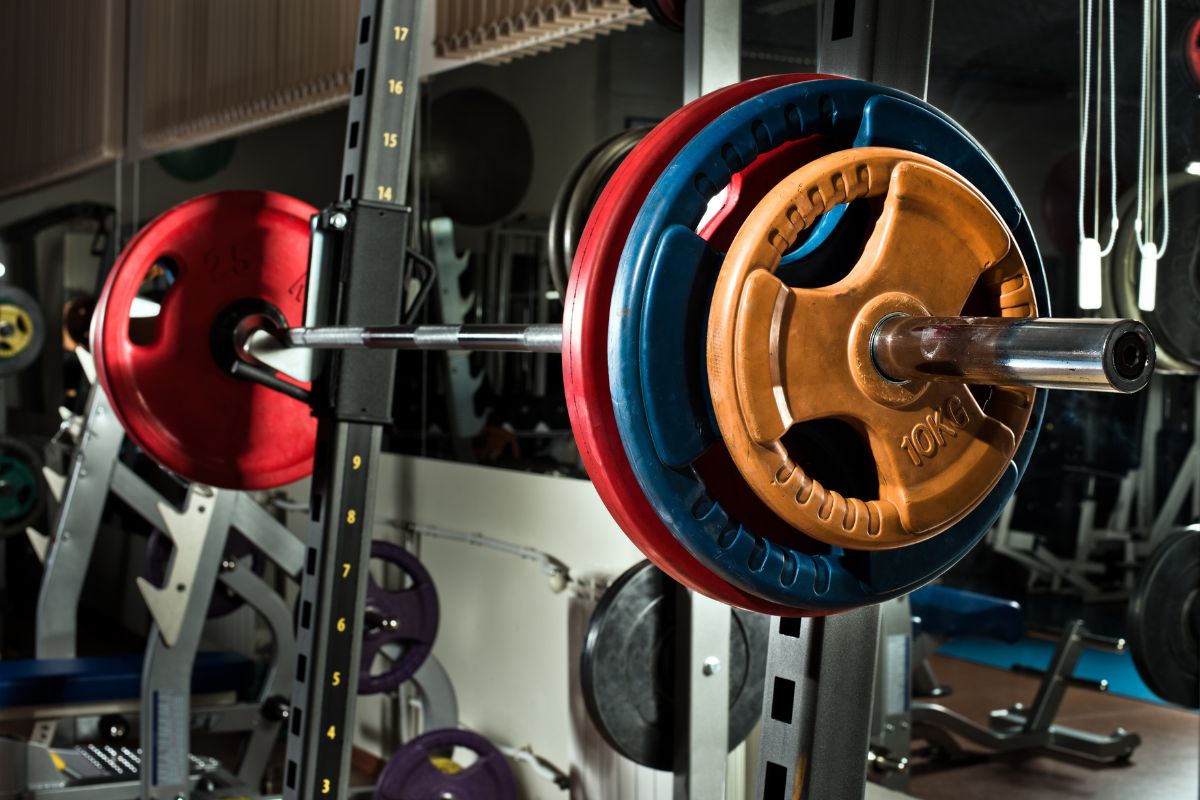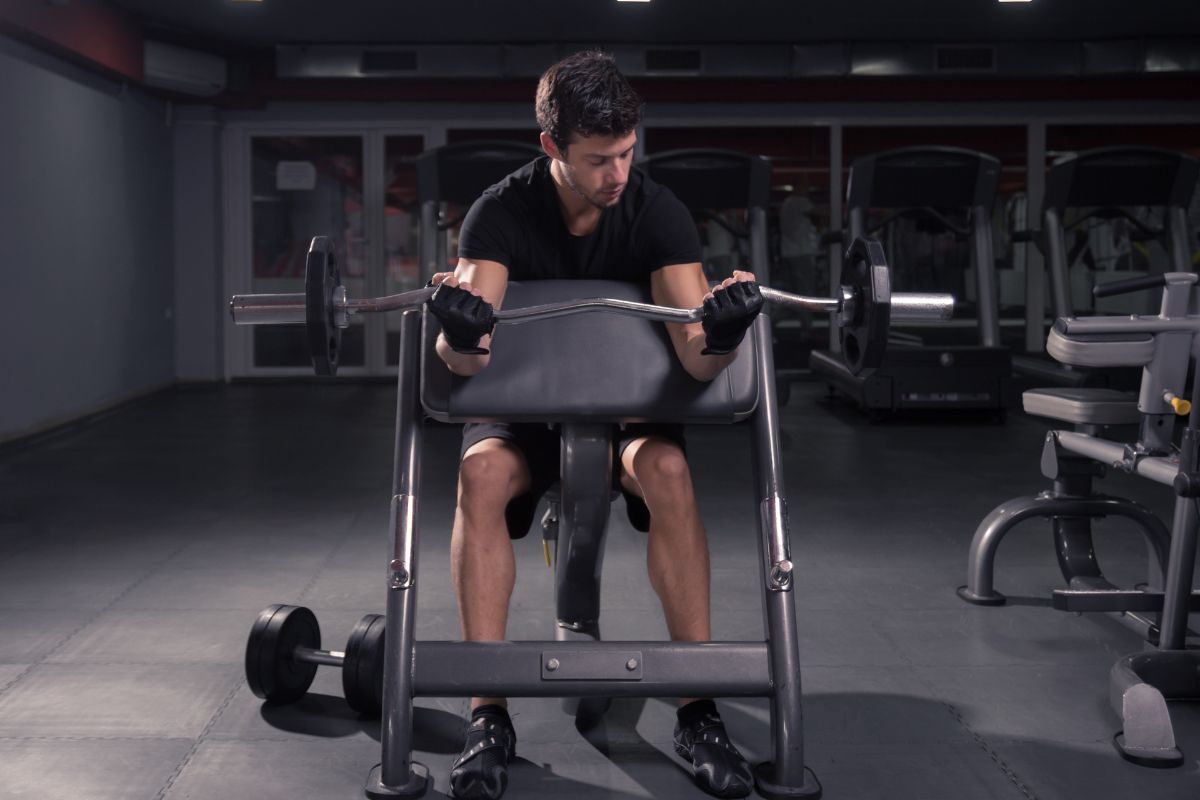In the world of fitness, we often talk about the ‘right’ or ‘best’ way to do things. A lot of the time, there are very good reasons for this. For example, we discuss correct form because lifting with the wrong posture can result in injury.


When it comes to lifting heavy versus lifting lighter weights, though, you might be surprised to hear that one method of strength training isn’t necessarily better than the other.
In this article, we will be explaining why lifting heavy weights isn’t always better than lifting light weights, and vice versa. A lot of factors come into play here, so let’s get learning!
Why Lifting Heavy Is Beneficial?
Many strength training enthusiasts see lifting heavy as the most important thing when it comes to building muscle and getting stronger, and it’s true that there are plenty of benefits to lifting larger weights.
For one thing, lifting heavy weights will help you to gain muscle faster.
That’s because building strength ultimately comes down to inducing muscle fatigue, and there’s no more effective way to tire out your muscle than by lifting heavier weights.
You can fatigue your muscles to the same extent by doing more reps with lighter weights, but this takes longer, which is why heavy lifting is considered more time-efficient.
Another benefit of lifting heavy weights is that you can still incorporate cardio into your workout routine if you plan your sessions ahead of time.
The Advantages Of Lifting Light Weights
Despite how often light weights are treated as a waste of time when it comes to strength training and muscle gains, lighter weights can be a very beneficial part of your workout regimen.
If you’re a beginner just starting out on your fitness journey, it’s a good idea to begin with lighter weights.
The reason for this is that you need to learn the correct form when you start strength training to avoid injuries. It’s much easier to get used to proper form when you’re using light weights.
Eventually, you can increase the amount of resistance you use, but it’s never a good idea to throw yourself in at the deep end with weights that are too heavy for you.
While you can certainly include cardio in your workout schedule while lifting heavy weights, you can save yourself more time and increase the effectiveness of your cardio workouts by incorporating lighter weights directly into your cardio plan.
Try a Zumba class while holding 3-pound weights and you’ll definitely notice a difference!
Why Reps Matter?
As you can see, there are benefits to using both light and heavy weights in your strength training routine, which means that it’s inaccurate to portray one method as better than the other.
Contrary to popular belief, it is possible to build strength and muscle using light weights.
Sure, larger weights are more effective for building large muscles and lighter weights are best for developing a lean physique, but both will produce results – just on different time scales.
Ultimately, reps are the most important thing.
As we mentioned earlier, you can cause your muscles to become fatigued by lifting lighter weights. You’ll just have to put in the time and effort to do more reps.
When you’re lifting heavier weights, you can build muscle with fewer repetitions. For example, you might only do 5 reps with a 20 lb weight.
On the other hand, if you’re using a 5 lb weight, you’ll need to do more repetitions (more like 20 reps) to tire out your muscles.
In the end, if you adjust your reps according to the amount of weight you’re lifting, you can put your muscles in a state of hypertrophy regardless of whether you’re lifting light or heavy.
People who lift heavy weights will often keep lifting until they hit ‘failure’ – the point where they literally can’t continue to lift anymore.
While lifting heavy weights to the point of failure is a good indicator that your muscles are truly fatigued, there are many studies that have demonstrated that the same result can be achieved with lighter weights and more reps.


When Should You Increase Weight?
While you can build strength and develop your muscles using both heavy and light weights, there may come a time in your fitness journey when you want to increase the amount of weight you’re lifting.
But how can you tell when the time is right to increase the weight rather than simply adjusting the number of reps you’re doing?
If you’ve been training with light weights for a while but aren’t happy with your results, you might want to try lifting heavier weights to see progress more quickly.
Again, while both light and heavy weights produce results, heavier weights will lead to more visible muscle growth in a shorter period of time.
A good way to tell that you should consider lifting more weight is if the last couple of reps isn’t challenging you enough.
While you shouldn’t be struggling so much that you forget about your form, you should have to really push yourself at the end of your last set.
If you’re breezing through your final reps, this is a sign that it’s time to increase the weight.
Deciding to lift heavier weights is perfectly valid, but please make sure that you’re doing so safely. You definitely don’t want to go straight from lifting 5 lb weights to 30 lb weights.
Instead, increase the weight gradually and make sure that you can complete your exercises using the correct form before you add any more weight.
If you try a heavier weight and find that you can’t finish your sets without compromising your form, take the weight back down a notch.
This is important because improper form increases your risk of injury, which is not only dangerous but completely counterproductive if you want to maintain a regular workout schedule.
Frequently Asked Questions
Is It Safe To Lift Light Weights Every Day?
If you’re planning to lift weights every day of the week without a rest day, it’s definitely a better idea to stick to light weights.
You’re less likely to injure yourself by overstraining your muscles if you choose lighter weights for a daily workout schedule.
However, we would always recommend taking at least one rest day per week to allow your muscle fibers to repair.
After all, even if you’re using light weights, you should still be doing enough reps to cause muscle fatigue.
Are Light Weights Effective?
Light weights can be very effective for building muscle as long as you perform enough reps to make your muscles fatigued.
Light weights are also an effective addition to any cardio routine as they add extra resistance.
Do I Have To Lift Heavy To Get Toned?
No, you don’t need to lift heavy weights to get toned. In fact, if your goal is a lean and toned physique, you might be better off lifting lighter weights with more reps.
Typically, lifting heavier weights will make your muscles look bulkier as opposed to toned.
Final Thoughts
The idea that either heavy or light weights are ‘better’ for strength training is a misconception.
Both approaches have their benefits, with light weights leading to more gradual toning and a lean physique, and heavier weights producing faster muscle gains.
At the end of the day, the most important thing when it comes to building muscle is how many reps you do, how often you are working out, and how consistent you have been with your workouts – not how much weight you lift.
- How To Start HIIT Workouts [Beginner’s Guide] - May 18, 2023
- How To Sneak A Workout In While Taking Care Of Your Baby - March 17, 2023
- How To Build Your Chest With Dumbbells [Guide] - February 9, 2023








